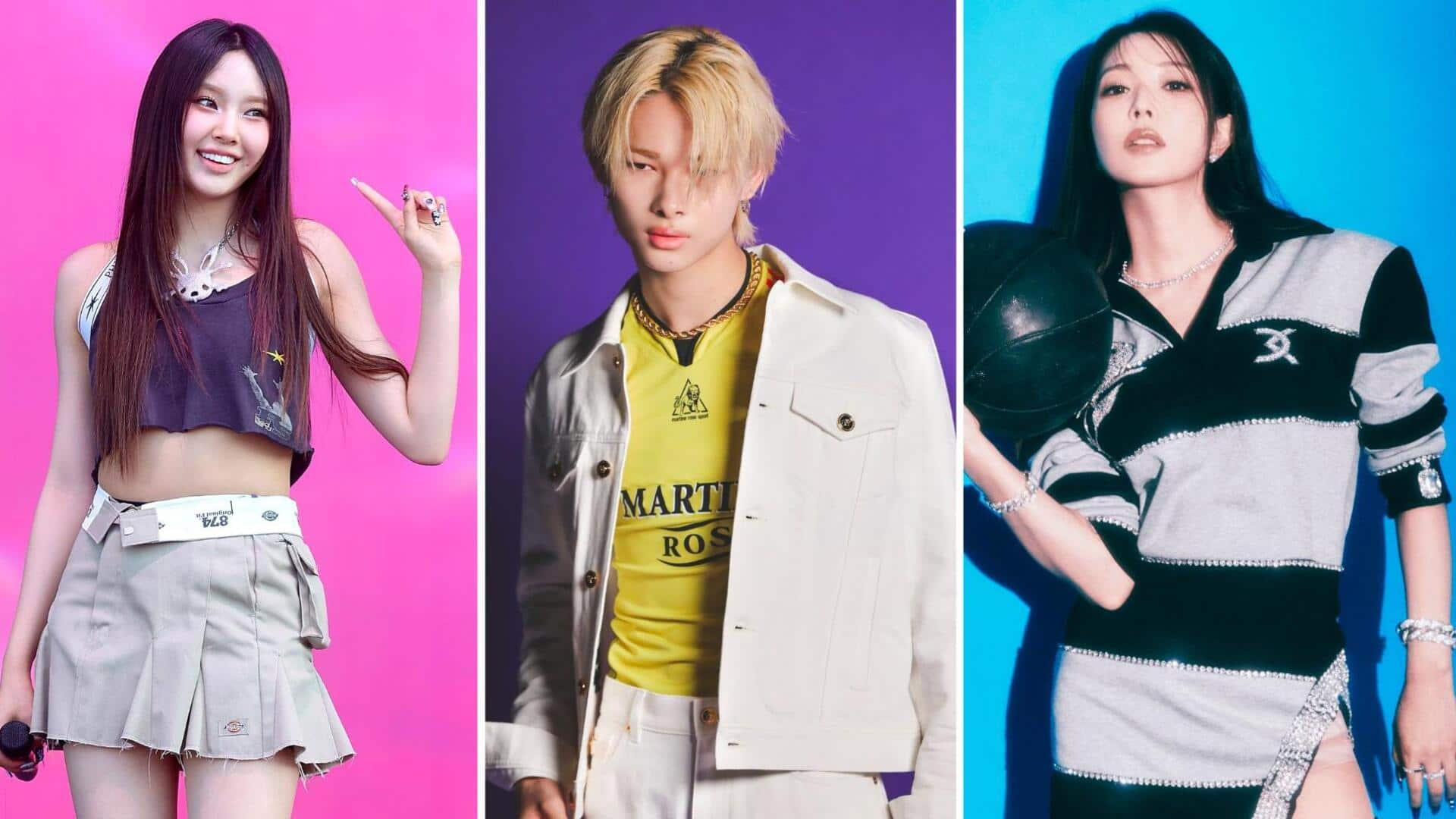
Explainer: Dark side of debuting minors in K-pop industry
What's the story
Beneath the glitz and glamor of the K-pop industry lies a troubling reality—the debut of minors into a world that demands perfection and youthful appeal. While the catchy tunes and meticulous choreography are enticing, these young idols give a heavy price, including unrelenting scrutiny, over-sexualization, and intense performance pressures. Here, we understand the controversial trend of debuting minors in the K-pop realm.
Beginning
When did the trend of debuting minors begin?
The trend of debuting underage talents began with BoA—a soloist under SM Entertainment—who kickstarted her career at 13. Since then, the industry has frequently introduced idols between the ages of 14 and 17, fueled by the belief that an idol's "prime" age falls within the 17 to 21 range. Most recently, HYBE introduced NewJeans—an all-teenage girl group—with their youngest member (Hyein) being just 15.
Information
Look back at the youngest K-pop idols ever to debut
Renowned K-pop artists such as Ni-ki from ENHYPEN, Krystal of f(x), Taemin of SHINee, Sohyun from the now-defunct 4MINUTE, Leeseo of IVE, and the celebrated HyunA, have debuted in the K-pop scene at remarkably young ages, ranging from 14 to 16 years old.
Controversial trend
Why is issue of young kids in K-pop so controversial?
One significant reason behind debuting young members is that it extends the group's "lifespan" in the industry. Another reason pertains to K-pop beauty standards which highly prioritize youth and attractiveness, prompting companies to debut idols at a young age. Many idols who started training around 15 or 16, express regret over missing out on a typical childhood filled with play and social interactions.
Concerns
Another major concern: Sexualization of young idols
The sexualization of young idols remains a pressing concern in the K-pop industry. It extends beyond "revealing clothes" and includes the premature imposition of adult mindsets on these young talents. This issue was poignantly brought to light during MBC's show, My Teenage Girl, which featured participants as young as 11, sparking significant debate and raising questions about the industry's practices.
Did you know?
Harsh realities: Have you heard of 'slave contracts'?
K-pop management agencies actively search for new talents aspiring to become the next big idols. However, the training period often involves the imposition of "slave contracts," which are exploitative long-term agreements between trainees and their agencies. These contracts come with strict diets, grueling training, intense scrutiny, and a no-dating policy. Concerns have surfaced about the well-being and rights of young talents in the industry.
Lawsuit
When Lee Seung-gi filed a criminal lawsuit against Hook Entertainment
In 2022, singer-actor Lee Seung-gi took legal action against the executives of his former agency, Hook Entertainment—accusing them of fraud and embezzlement. Shockingly, it came to light that the 35-year-old artist—who was bound by a slave contract—had not received any compensation, despite releasing 137 songs since his debut in 2004. The agency acknowledged their wrongdoing and eventually paid him 630M won in delayed fees.
Legislation
South Korea passed a bill to protect underage K-pop idols
In light of Lee's plight—who endured an "unpaid" status throughout an 18-year slave contract—South Korea introduced the Lee Seung-gi Crisis Prevention Act in April this year. This bill is specifically designed to safeguard underage K-pop idols from exploitation. It emphasizes the reinforcement of financial transparency and the imposition of working hour limits to shield artists from enduring exploitative contracts within the industry.